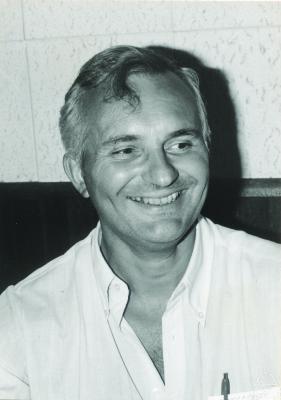Jacques-Louis Lions facts for kids
Quick facts for kids
Jacques-Louis Lions
|
|
|---|---|

Lions in 1970
|
|
| Born | 2 May 1928 |
| Died | 17 May 2001 (aged 73) Neuilly-sur-Seine, France
|
| Alma mater | École normale supérieure University of Nancy |
| Known for | Asymptotic homogenization Interpolation space Lion's theorem Lions–Magenes lemma Aubin–Lions lemma Duvaut–Lions formulation |
| Awards | W. T. and Idalia Reid Prize (1998) ForMemRS (1996) Harvey Prize (1991) Japan Prize (1991) John von Neumann Prize (1986) ICM Speaker (1958, 1970, 1974) Peccot Lecture (1958) |
| Scientific career | |
| Fields | Mathematics |
| Institutions | École Polytechnique Collège de France |
| Doctoral advisor | Laurent Schwartz |
| Doctoral students | Alain Bensoussan Jean-Michel Bismut Haïm Brezis Erol Gelenbe Roland Glowinski Roger Temam |
Jacques-Louis Lions (born May 2, 1928 – died May 17, 2001) was a brilliant French mathematician. He made big contributions to understanding how things change over time and space, especially in areas like partial differential equations. He also worked on how to control systems that involve chance, known as stochastic control. He won many important awards for his work, including the John von Neumann Lecture prize.
Contents
A Life in Mathematics
Jacques-Louis Lions was born in Grasse, France. During 1943 and 1944, he was part of the French Résistance, a group that secretly fought against the occupation of France during World War II. After this, he began his studies at the famous École Normale Supérieure in 1947.
Teaching and Research
Lions became a professor of mathematics. He taught at the University of Nancy, the Faculty of Sciences of Paris, and the École Polytechnique. In 1966, he even sent a special invitation to a Soviet mathematician, Gury Marchuk. This invitation was personally delivered by Général De Gaulle during his visit to Akademgorodok.
In 1973, he joined two very important French institutions: the Collège de France and the French Academy of Sciences. These are places where top scientists and thinkers work and teach.
Leading in Technology and Space
In 1979, Jacques-Louis Lions became the director of INRIA, which is France's national institute for research in computer science and automation. Here, he taught and encouraged the use of computer models, called numerical simulations. These models help solve complex problems using mathematics.
He strongly believed that mathematics should be used in real-world industries. He was especially involved in the French space program. He also worked on projects related to energy and the environment. Because of his important work, he was made director of the Centre National d'Etudes Spatiales (CNES), France's space agency, from 1984 to 1992.
International Recognition
Lions received many honors throughout his career. In 1991, he was elected President of the International Mathematical Union. This is a global organization for mathematicians. In the same year, he also received the Japan Prize and the Harvey Prize, both very prestigious awards.
In 1992, the University of Houston gave him an honorary doctoral degree. In 1996, he was elected president of the French Academy of Sciences. He was also a Foreign Member of the Royal Society in the UK and many other academies around the world.
His Lasting Work
Jacques-Louis Lions left behind a huge amount of work. He wrote over 400 scientific articles. He also published 20 books on mathematics, which were translated into English and Russian. He contributed to major group projects, including the massive 4000-page book Mathematical analysis and numerical methods for science and technology. He also worked on the Handbook of numerical analysis, which has 7 volumes.
His son, Pierre-Louis Lions, is also a very famous mathematician. Pierre-Louis won the Fields Medal in 1994, which is one of the highest honors in mathematics. Both father and son received honorary doctorates from Heriot-Watt University in Scotland.
See also
- Ehrling's lemma
- Inverse problem
- Titchmarsh convolution theorem
- Variational inequality
 | Precious Adams |
 | Lauren Anderson |
 | Janet Collins |

